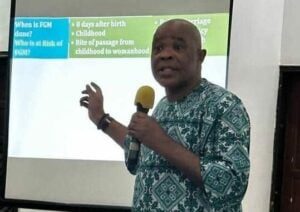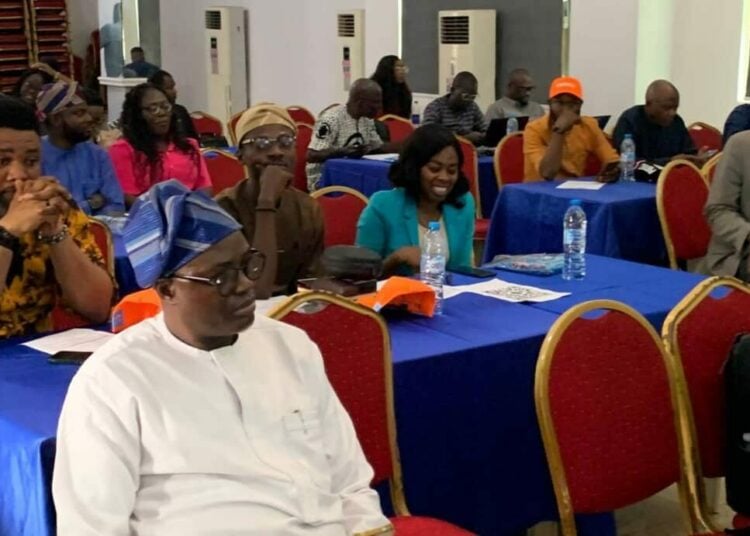The United Nations Children’s Fund (UNICEF) has described Female Genital Mutilation (FMG) as a human rights challenge that must be put to an end.
UNICEF’s Chief of Lagos Field Office, Celine Lafoucriere who stated this at a two-day media dialogue, stressed the need to accelerate fight against the practice to achieve its total eradication in Nigeria before 2030.
The engagement, organised by the Oyo State Ministry of Information and Orientation in collaboration with UNICEF and held in Benin, Edo State, had in attendance journalists, civil society organisations from the South-West region, to brainstorm on ending female genital mutilation in the country.
Nigeria ranked third globally, behind India and Bangladesh in FGM prevalence, with nearly 20 million women and girls said to have been subjected to the harmful process, most of whom were cut before their fifth birthday.
Lafoucriere said female genital mutilation was never a choice, but a violation, that is inflicted on women and girls.
“Here is the reality, most of these girls are cut when they are completely powerless. No culture or custom should ever come at the expense of a girl’s health, rights, or her future,” she maintained.
The UNICEF official who is also of the view that myths, traditions and misconceptions, were parts of factors responsible for the practice, however, noted that positive change was taking root.
This, she said was happening through national initiatives like the ‘Movement for Good’, led by the federal government with UNICEF’s support where millions of Nigerians have pledged to protect girls from being mutilated with communities speaking out, survivors leading advocacy and young people demanding change.

She, therefore, called on the media practitioners and other participants to use their storytelling power to amplify survivors’ voices to effect cultural shifts.
“The stories you tell can inspire families to choose differently for their daughters.Every girl deserves to grow up free of this fear and this harmful possibility,” she charges.
A UNICEF’s Child Protection Specialist, Denis Onoise, lamented that most of the girls were being cut at an age when they were powerless to resist, consent, or even understand what was being done to them.
Onoise, who identified some of the devastating effects of the practice on survivors said it robs girls of their dignity and inflicts injuries that last a lifetime, long-term psychological trauma, complications during childbirth and exposure to other health risks in the future.
Decrying the global psychological and economic costs of the practice put at about USD1.4 billion, he said, “Beyond the human suffering, the economic burden is immense —
if no serious action was urgently taken.
An FGM consultant, Mrs. Aderonke Olutayo said the menace was thriving because many were unaware of the VAPP law domesticated in most of the states.
Olutayo, who urged community stakeholders to always speak out on the enforcement of the existing laws, also called for robust partnership amongst the media, judiciary and those in the health sector to end FGM.
“FGM weakens communities. The media must set the agenda, raise awareness, and dismantle these harmful beliefs and myths that continue to put women and girls at risk,” Olutayo stressed.






